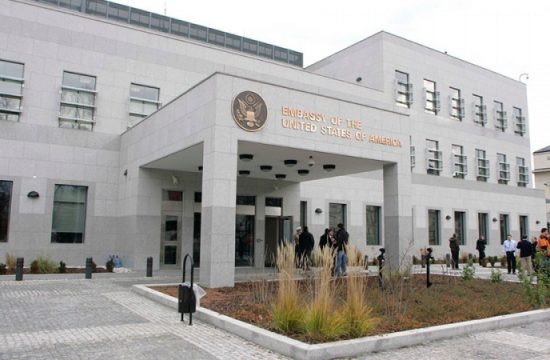
Unless a civic identity is established in Bosnia and Herzegovina, in the long run, the country will end up like former Yugoslavia, professor at the Faculty of Political Science of Zagreb University, Dejan Jovic, told N1 on Wednesday.
The long-term problem of Bosnia and Herzegovina is the insistence on ethnopolitics and denial of the fact that other ethnic groups apart from the three constituent peoples live in the country, he said.
Jovic spoke to N1 days before the November 15 local election and said that it seems that Serbs and Croats in Bosnia have found a common political interest. While he noted that the fact that two of the major ethnic groups have reached an agreement is good, the problem is that there is no such agreement between all three constituent groups in Bosnia’s society.
When Bosniaks and Bosnian Croats agreed on the issue of Bosnia’s independence they completely ignored the position of the Bosnian Serbs and now the roles are reversed, he said, arguing that now Croats and Serbs are on one side and the Bosniaks are on the other.
Jovic argued that there are also people in Bosnia who do not want to identify with any of the three major ethnic groups or identify with two of them at the same time, and the insistence on “ethnopolitics” completely ignores that.
He exemplified this with a European Court for Human Rights ruling against Bosnia in which a Jew, Jakob Finci, and a Roma, Dervo Sejdic, proved that they are being discriminated against as they have no possibility to run for the Presidency according to the setup of the state.
The problem of discrimination of minorities also extends to cases in which members of one ethnic group are a minority in one of Bosnia’s two-semi-autonomous entities, Republika Srpska (RS) and the Federation (FBiH), he added.
“If a sense of belonging to Bosnia and Herzegovina is not established in the long run – a civic identity in Bosnia, constitutional loyalty, some constitutional patriotism – but everything remains left to the three ethnic peoples, Bosnia is on track to repeat the fate of Yugoslavia,” he said.
Yugoslavia created a problem when it abandoned the common idea of a Yugoslavian identity and began approaching all issues through a scope of ethnicity while rejecting the socialist narrative, he argued.
“These nationalists reject everything that does not suit them, and in Bosnia, they do not like any mention of civic identity, and I, unfortunately, see that coming from Bosniak leaders as well,” Jovic concluded.




